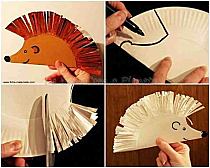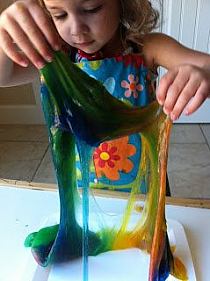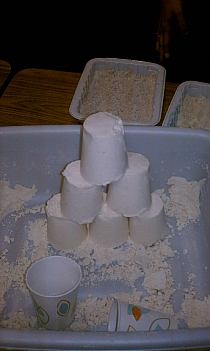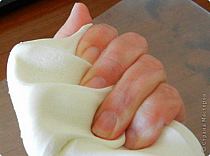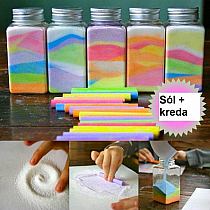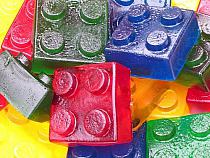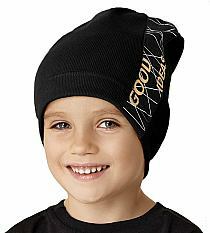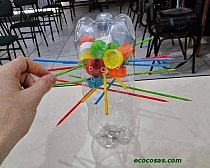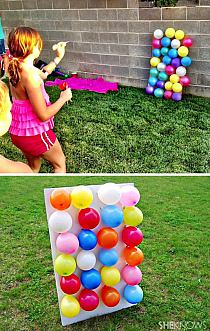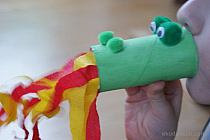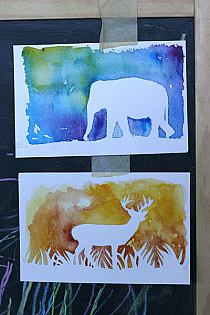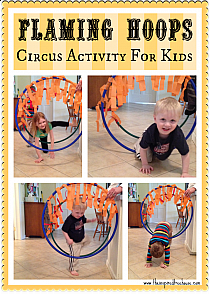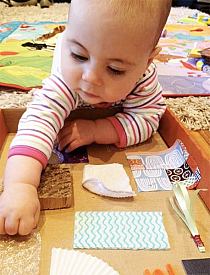-
Inspiracje
- Najnowsze
- Najpopularniejsze
- Zaskocz mnie
- Obserwowane
- MAGazyn
- Moda damska
- DIY - zrób to sam
- Kuchnia
- Uroda
- Wnętrza
- Humor
- Ogród
- Ślub
- Architektura
- Biżuteria
- Design
- Dziecko
- Film
- Fotografia
- Gadżety
- Historia
- Hobby
- Inne
- Książka
- Moda męska
- Muzyka
- Nauka i natura
- Plakaty i obrazy
- Podróże i miejsca
- Samochody i motocykle
- Sport i fitness
- Święta i uroczystości
- Tatuaż
- Zwierzęta
- Partnerzy
- KONKURS
-
Zakupy
-
ONA
- Ubrania
- Bielizna
- Bluzki
- Bluzy
- Dresy damskie
- Kombinezony
- Koszule
- Koszulki
- Kurtki
- Płaszcze
- Spodnie i leginsy
- Spodnie jeans
- Spódnice
- Stroje kąpielowe
- Sukienki i tuniki
- Swetry
- Szorty
- Zestawy
- Żakiety i kamizelki
- Buty
- Baleriny
- Botki
- Czółenka
- Espadryle
- Glany
- Japonki
- Kalosze
- Klapki
- Koturny
- Kowbojki
- Kozaki
- Obuwie Domowe
- Półbuty
- Sandały
- Sportowe i lifestyle
- Szpilki
- Tenisówki i Trampki
- Trapery i trekkingi
- Dodatki
- Bransoletki i zawieszki
- Breloki
- Czapki i kapelusze
- Etui
- Kolczyki, nausznice
- Kołnierzyki
- Kosmetyczki
- Naszyjniki, kolie i zawieszki
- Okulary
- Ozdoby do włosów
- Parasole
- Paski
- Pierścionki
- Plecaki
- Portfele
- Rękawiczki
- Skarpety
- Szaliki i chusty
- Torby i torebki
- Walizki
- Zegarki
- Zestawy biżuterii
- Zdrowie i uroda
- Balsamy
- Bazy i podkłady
- Cienie do oczu
- Dezodoranty
- Higiena jamy ustnej
- Korektory
- Kredki
- Kremy i serum
- Lakiery
- Manicure i pedicure
- Maseczki
- Odżywki
- Peeling
- Perfumy i wody perfumowane
- Pielęgnacja po opalaniu
- Płyny żele i mydła
- Pomadki i błyszczyki
- Pudry
- Róże
- Stylizacja włosów
- Szampony
- Toniki i demakijaż
- Tusze
- Wody toaletowe
- Zestawy
-
ON
- Ubrania
- Bielizna
- Bluzy
- Kąpielówki
- Koszule
- Kurtki i płaszcze
- Marynarki kamizeki
- Spodenki i szorty
- Spodnie
- Swetry
- T-shirt długi rękaw
- T-shirt i Polo
- KULTURA
- GADŻETY
- DZIECKO
-
DOM I WNĘTRZE
- Wnętrza
- Akcesoria dom
- Ceramika i szkło
- Do baru
- Do biura
- Do kuchni
- Kubki kufle i kieliszki
- Lustra
- Nakrycia stołu
- Oświetlenie
- Plakaty i tablice
- Pościele, poduszki i nakrycia
- Przechowywanie
- Tekstylia
- Zegary i budziki
-
Marki
- MARKI
- Adidas
- Adriatica
- Alter Core
- Armani
- Asics
- Atlantic
- Azzaro
- Barbie
- Bburago
- Be-U
- Benetton
- Bering
- Black Plum
- Burberry
- Bvlgari
- Cacharel
- Calvin Klein
- Canon
- Carolina Herrera
- Carrera
- Casio
- Celestron
- Chanel
- Chloe
- Clinique
- Cobi
- Coloud
- Converse
- David Beckham
- Davidoff
- Delbana
- Diesel
- Dior
- DISNEY
- DKNY
- Dolce & Gabbana
- DOXA
- Dr. Martens
- Dunhill
- Ecco
- Elizabeth Arden
- Esprit
- EVC DSGN
- Festina
- Fila
- Fisher Price
- Frederique Constant
- Givenchy
- Gucci
- Guerlain
- Guess
- Hasbro
- Helena Rubinstein
- Hermes
- Hi-Tec
- Hugo Boss
- Hunter
- Iceberg
- Ingersoll
- Issey Miyake
- Jean Paul Gaultier
- Jennifer Lopez
- Jil Sander
- Jimmy Choo
- Joop!
- Juicy Couture
- Kappa
- Kenzo
- Komono
- Lacoste
- Lalique
- Lancome
- Lanvin
- Lee
- Lego
- Lorus
- Marc Jacobs
- Marshall
- Masaki Matsushima
- Matchbox
- Mattel
- Max Factor
- Max&Co
- Mc Arthur
- Mizuno
- Mont Blanc
- Moschino
- Mr. Gugu & Miss Go
- My Little Pony
- New Balance
- Nike
- Nikon
- Nina Ricci
- Ninety Eight Clothing
- Nivea
- Nixon
- Nooka
- Obaku
- Onitsuka Tiger
- Paco Rabanne
- Pentax
- Pewex
- Pierre Cardin
- Playboy
- Prada
- Puma
- Ralph Lauren
- Reebok
- Regatta
- Revlon
- Rexona
- Rider
- Salomon
- Salvatore Ferragamo
- Shelyak
- Shiseido
- Skagen
- Swarovski
- Takahashi
- Thierry Mugler
- Timberland
- Timex
- Tommy Hilfiger
- UGC
- Urbanears
- Valentino
- Vans
- Versace
- Viktor & Rolf
- Vixen
- Welly
- William Optics
- Wrangler
- Yimaida
- Yukon
- Yves Saint Laurent
-
ONA
-
Szukaj
- Losuj
Dziecko
Dziecko
Sensory Diet Ideas for Oral Sensory Seeking Behaviors in Children | Everyday Life - Global Post Sensory Diet Ideas for Oral Sensory Seeking Behaviors in Children
by Cara Batema, Demand Media
Incoporate a sensory diet to treat oral seeking behaviors.
Incoporate a sensory diet to treat oral seeking behaviors.
Related Articles
How to Treat Sensory Seeking Behavior in a Toddler
How to Improve Behavior in Children With Sensory Play Equipment
Healthy Food Diets for Children With Sensory Integration Disorder
Behavior Issues & Sensory Integration Disorder in Children
How to Create a Sensory Diet for Teens
How to Discourage Attention-Seeking Behaviors in Children
If your child “misbehaves,” you might be quick to assume he needs discipline. When he puts everything he touches into his mouth, your initial reaction is almost always “don’t do that!” You might not realize your child’s desire to receive that oral stimulation is also an attempt to stay organized, pay attention or calm himself with sensory input. With a well-rounded sensory diet, your child can limit these sensory seeking behaviors.
The Ingredients
Just like baking the perfect cake, you need to have the right ingredients in the proper proportions. In addition to the five senses you are likely already familiar with -- taste, touch, smell, hearing and vision -- you need to incorporate proprioceptive and vestibular senses. Proprioception refers to sensations from muscles and joints that are best felt with activities like pulling, pushing or lifting. Vestibular sense refers to the sense of movement, and activities like spinning or hanging upside down provide the most intense vestibular input.
The Main Course
Your child’s sensory diet should have proprioceptive and vestibular activities at its core. According to occupational therapist Patricia Wilbarger, who coined the term “sensory diet,” these activities have the longest-lasting impacts on the nervous system. Try activities like sitting and bouncing on large hop balls, filling a pot with water and carrying it to a destination, swinging upside down from monkey bars or doing a few push-ups. You might ask, “What do these activities have to do with oral seeking behaviors?” -- the point of a sensory diet is to address all sensations, and the better all the senses are integrated, the more your child will be able to tolerate sensations or limit sensory seeking because all his sensory needs will be met.
Incorporating Oral Senses
While it might seem counterintuitive to you, address oral seeking behaviors by giving your child something appropriate to put into his mouth. Some companies even make jewelry or pencils made for chewing, so your child can be more discreet than chewing on his shirt sleeve. Additionally, let your child help you with food preparation and try new foods that have a strong flavor, which will arouse your child’s taste sense. Try a mixture of hot and very cold foods (think ice pops) as well.
Example
Plan sensory diet activities for every part of your child’s day. In the morning, if you feel your child needs more arousing activities, have him jump on a trampoline for a few minutes and prepare a crunchy cereal for breakfast. If your child needs more calming sensations, provide him with a foot massage and listen to calming music during breakfast. In the afternoon or after school, go to the park and practice activities like hanging from the monkey bars or riding on a swing. For an afternoon snack, have your child suck through a straw and eat chewy snacks. Let your child help you cook dinner and encourage him to help you pick flavors. In the evening, try a bubble bath with a calming scent like lavender and read a bedtime story.
References
Sensory Smarts: Sensory Diet Activities
Raphaot: Sensory Diet
Sensory Processing Disorder: Creating a Home Sensory Diet
About the Author
Cara Batema is a musician, teacher and writer who specializes in early childhood, special needs and psychology. Since 2010, Batema has been an active writer in the fields of education, parenting, science and health. She holds a bachelor's degree in music therapy and creative writing.
by Cara Batema, Demand Media
Incoporate a sensory diet to treat oral seeking behaviors.
Incoporate a sensory diet to treat oral seeking behaviors.
Related Articles
How to Treat Sensory Seeking Behavior in a Toddler
How to Improve Behavior in Children With Sensory Play Equipment
Healthy Food Diets for Children With Sensory Integration Disorder
Behavior Issues & Sensory Integration Disorder in Children
How to Create a Sensory Diet for Teens
How to Discourage Attention-Seeking Behaviors in Children
If your child “misbehaves,” you might be quick to assume he needs discipline. When he puts everything he touches into his mouth, your initial reaction is almost always “don’t do that!” You might not realize your child’s desire to receive that oral stimulation is also an attempt to stay organized, pay attention or calm himself with sensory input. With a well-rounded sensory diet, your child can limit these sensory seeking behaviors.
The Ingredients
Just like baking the perfect cake, you need to have the right ingredients in the proper proportions. In addition to the five senses you are likely already familiar with -- taste, touch, smell, hearing and vision -- you need to incorporate proprioceptive and vestibular senses. Proprioception refers to sensations from muscles and joints that are best felt with activities like pulling, pushing or lifting. Vestibular sense refers to the sense of movement, and activities like spinning or hanging upside down provide the most intense vestibular input.
The Main Course
Your child’s sensory diet should have proprioceptive and vestibular activities at its core. According to occupational therapist Patricia Wilbarger, who coined the term “sensory diet,” these activities have the longest-lasting impacts on the nervous system. Try activities like sitting and bouncing on large hop balls, filling a pot with water and carrying it to a destination, swinging upside down from monkey bars or doing a few push-ups. You might ask, “What do these activities have to do with oral seeking behaviors?” -- the point of a sensory diet is to address all sensations, and the better all the senses are integrated, the more your child will be able to tolerate sensations or limit sensory seeking because all his sensory needs will be met.
Incorporating Oral Senses
While it might seem counterintuitive to you, address oral seeking behaviors by giving your child something appropriate to put into his mouth. Some companies even make jewelry or pencils made for chewing, so your child can be more discreet than chewing on his shirt sleeve. Additionally, let your child help you with food preparation and try new foods that have a strong flavor, which will arouse your child’s taste sense. Try a mixture of hot and very cold foods (think ice pops) as well.
Example
Plan sensory diet activities for every part of your child’s day. In the morning, if you feel your child needs more arousing activities, have him jump on a trampoline for a few minutes and prepare a crunchy cereal for breakfast. If your child needs more calming sensations, provide him with a foot massage and listen to calming music during breakfast. In the afternoon or after school, go to the park and practice activities like hanging from the monkey bars or riding on a swing. For an afternoon snack, have your child suck through a straw and eat chewy snacks. Let your child help you cook dinner and encourage him to help you pick flavors. In the evening, try a bubble bath with a calming scent like lavender and read a bedtime story.
References
Sensory Smarts: Sensory Diet Activities
Raphaot: Sensory Diet
Sensory Processing Disorder: Creating a Home Sensory Diet
About the Author
Cara Batema is a musician, teacher and writer who specializes in early childhood, special needs and psychology. Since 2010, Batema has been an active writer in the fields of education, parenting, science and health. She holds a bachelor's degree in music therapy and creative writing.
MA==
Podobne inspiracje
160
1
CHOINKA
Czapka wiosenna jesienna dla chłopca, Good Ideas, rozm.…
525
1
134
jeż z talerzyka papierowego
Hands-On Pumpkin Math: The Geo Pumpkin {Fun-A-Day!}
Czapka wiosenna jesienna dla chłopca, Good Ideas, rozm.…
Weaving through a rainbow | Teach Preschool
Foam Bow and Arrow to Make for Kids | Ziggity Zoom
1
25 More DIY Educational Activities for Kids | Babble
25 More DIY Educational Activities for Kids | Babble
Czapka wiosenna jesienna dla chłopca, Good Ideas, rozm.…
1
Still Playing School: Glow in the Dark Spider Webs
A Multi-Tasking Activity | Starfish Therapies
Nervous System - Occupational Therapy Student Info
Tot Treasures: SLIME Don't you LOVE it when your l…
Czapka wiosenna jesienna dla chłopca, Good Ideas, rozm.…
10
Sand Foam...two ingredients for super, sensory fun To m…
823
761
Moon sand. - PLASTOLINA
Wystarczy wymieszać 8 szklanek…
107
Pinterest
Czapka wiosenna jesienna dla chłopca, Good Ideas, rozm.…
2564
Zimna porcelana bez gotowania | Kreatywne tworzeniePrzy…
431
Umyj klocki lego. Następnie wlej do nich galaretkę. Poz…
Czapka wiosenna jesienna dla chłopca, Good Ideas, rozm.…
472
Szopka z patyczków
Czapka wiosenna jesienna dla chłopca, Good Ideas, rozm.…
1016
ozdoby choinkowe
894
zajęcia plastyczne
2
GROSS MOTOR ACTIVITIES: FLAMING HOOPS - The Inspired Tr…
Czapka wiosenna jesienna dla chłopca, Good Ideas, rozm.…
1013
419
papierowe talerzyki - kot z talerza
Infographic: Using LEGO to Teach Hands-On Math
Czapka wiosenna jesienna dla chłopca, Good Ideas, rozm.…
10 pomysłów na zabawki dla niemowlaka, które można zrob…
1
Gry i zabawy z niemowlakami - Silberg Jackie za 26,49 z…





